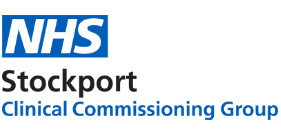Target Audience/Eligibility Criteria
This training is suitable for the whole general practice workforce. All staff should attend the whole session as best practice highlights that BLS training for both adults and paediatrics is required. Clinical staff should undertake this 90-minute face to face training annually. Non clinical staff should undertake this 90-minute face to face course initially and then every 3-years, e-learning should be undertaken in years 2 and 3.
Course Aim
This course aims to provide delegates with a level of resuscitation competence for both adults and paediatrics.
Healthcare organisations must ensure that their workforce receives the appropriate training, including periodic updates, in order to maintain a level of resuscitation competence relevant to their role. This course meets the requirements specified for Level 2 training on the Core Skills Framework and is suitable for staff with direct clinical care responsibilities, including all qualified healthcare professionals.
Learning Outcomes
Upon successful completion of the course delegates will be able to:
- Recognise cardio-respiratory arrest
- Appropriately summon emergency help in accordance with local protocols
- Perform CPR in the form of chest compressions
- Understand current legislation and local resuscitation policies and procedures
- Recognise and respond to patients with clinical deterioration, escalating care in accordance with local policy
- Initiate an appropriate emergency response, which may include management of choking and the use of the recovery position, all in accordance with current Resuscitation Council (UK) guidelines
- Initiate and maintain effective chest compressions in accordance with current Resuscitation Council (UK) guidelines for adults, children and infants
- Provide basic airway management for adults, children and infants
- Initiate and maintain effective lung ventilations in accordance with current Resuscitation Council (UK) guidelines for adults, children and infants
- Operate an Automated External Defibrillator (AED) safely and appropriately
- Understand individual roles and responsibilities in responding to persons in emergency situations
- Understand individual responsibilities in accurately reporting and recording details of an emergency event
- Understand the importance of undertaking any resuscitation interventions within the limits of personal capabilities and context of any previous training received
- Understand how the local Do Not Attempt Resuscitation Policy should be applied within a clinical context
- Recognise and apply emergency treatment of anaphylactic reactions
Course Duration – 90-minutes
Trainer/Facilitator
First Aid & More
Date/Time/Venue
- Tuesday 11th November 2025, 2pm – 3.30, Heaton Moor Medical Centre, 32 Heaton Moor Road SK4 4NX
- Thursday 15th January 2026, 10am – 11.30, Kennedy Way, Unit 2, Green Lane SK4 2JT
- Thursday 22nd January 2026, 10am – 11.30, Kennedy Way, Unit 2, Green Lane SK4 2JT
- Thursday 12th March 2026, 10am – 11.30, Heaton Moor Medical Centre, 32 Heaton Moor Road SK4 4NX
Cost
The cost per person for this training will be £18.00 for delegates employed by a Stockport General Practice, for any other delegate the cost will be £30pp. The cost of this training will be deducted from your next practice payment from NHS GM (see below for more details).
Booking Process/Additional Information
- To book a place an email must be sent to gmicb-sto.learningdevelopment@nhs.net from either the Practice Manager or Lead GP confirming the names, roles and contact details of those that require places. By submitting this booking request, you are confirming that you have agreed a process to deduct any agreed costs from your next payment from NHS GM. Locums and individuals who would like to self-fund should try to agree this process within their practice or their main practice so the above process can be followed (the next practice payment is deducted from NHS GM) and they in turn deduct payment from the individual. Where this is not possible, we will arrange an alternative method of paying and self-funders should email as above to book a place/arrange payment.
- The department is sympathetic to issues which may arise, however, if an individual is unable to attend an event for any reason, the learning and development team should be contacted via e-mail on gmicb-sto.learningdevelopment@nhs.net as soon as possible (prior to the final date as below):
-
- Tuesday 11th November 2025 – final date for cancellations is Tuesday 21st October 2025
- Thursday 15th January 2026 – final date for cancellations is Monday 22nd December 2025
- Thursday 22nd January 2026 – final date for cancellations is Monday 29th December 2025
- Thursday 12th March 2026 – final date for cancellations is Thursday 19th February 2026
After this date practices will be liable for the full cost, we will endeavor to find a new delegate to take the place but this cannot be guaranteed. Should NHS GM cancel the course, practices will be contacted to re-arrange the booking or will be issued a refund as required.
- Clinical staff members should attend a 90-minute face to face annually. Non-Clinical staff members need to initially attend a 90-minute face to face session then repeat this every 3-years only, in years 2 and 3 e-learning should be undertaken.
- If Practices would prefer to arrange inhouse sessions, the recommended trainer is Kevin Walker, First Aid & More Ltd, email kevinwalker6@me.com or call 07888 666368.
